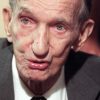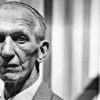By Andy Ladak
I’m looking out over early-morning Warsaw as I write these words. It’s Sunday, August 3, and the day promises to be hot, the latest in a week-long series of sweltering days in a city unaccustomed to such heat. Two thoughts occur to me. The first is that on this date 70 years ago Warsaw and its residents, military and civilian, were in the third day of a massive and desperate armed struggle that has passed into history as the Warsaw Uprising. By any historical or military measure, the Uprising was one of the most magnificent events in Poland’s long history of military triumphs and defeats. At the same time it remains, in the minds of many Poles, the single most tragic event endured by Poland and its people.
The second thought occurring to me at this moment is that today marks the 91st birthday of Irena Ładak, my mother. These two seemingly unrelated occasions, the anniversary of the Warsaw Uprising and my mother’s birthday, are inextricably linked for my mother and our family because my mother, a soldier in the Warsaw Uprising, turned 21 on this date in 1944.
My mother was among the relatively small number of surviving Uprising veterans around the world invited by the mayor of Warsaw and the Warsaw Uprising Museum to participate in the Uprising’s 70th anniversary commemorations. Beginning on July 30, for three emotion-filled days, my mother and I joined hundreds of other Uprising veterans, along with thousands of Poles and foreign guests, in a series of solemn commemorative events around the city. It’s been a rewarding, though tiring, experience for my mother, especially in the hot weather, but clearly it was important for her to be here at this time. It was also important for me to be here with my mother and all the other old soldiers. I say “all,” but the reality, of course, is that there are just a handful of them still with us, perhaps as few as 3,500 in the whole world. About 400 of them, according to an authoritative source, live outside Poland; of those, fewer than 180, my mother among them, came to Warsaw. As I look at them and talk to these Uprising veterans, I see old men and women, some of them wearing the distinctive white-over-red armbands that, during the Uprising, were often the only “uniform” element identifying them as Polish fighters. But though they are old, I can see that they are somehow different. Perhaps it’s the circumstances that set them apart; after all, if I were to pass them on a street in Detroit or elsewhere I probably would have no reason to recognize them as former soldiers of the Warsaw Uprising. Perhaps it’s because I realize that I am in the presence of old yet proud men and women who, many decades ago, when they were all young and strong, fought alongside each other and shared some of the worst things that human beings can endure. Or perhaps it’s a spark in their eyes, hinting at the spirit and courage that, 70 years ago, drove them to take up arms against one of the greatest evils the world has ever known. Most likely it’s a combination of all those things that draws me to these people, inspiring in me the kind of admiration and awe that I have always felt for my own mother and other heroes like her.
Nowadays the word “hero” is much abused. Indeed, I suppose that people who have no other frame of reference, don’t know much history and have never known a true hero may see football players, race-car drivers, entertainers, social malcontents and other popular figures as “heroes.” But those of us who have been privileged to know people like my mother know what true heroism is and how the word “hero” is meant to be used. True heroes are ordinary people like the rest of us who, when faced, often unexpectedly, with the urgent need to act, do extraordinary things, at great personal risk, for others or for a cause greater than their own self-interest. Heroes are people who, usually with no forethought, take courageous and decisive action at a critical moment, overcoming fear and the natural tendency to flee danger. Heroic action always involves great risk. Sometimes, as in war, it involves physical action that risks death or grievous physical trauma. At other times heroism involves moral action, often based on ethical considerations, that risks psychological trauma or, by challenging popular views, personal reputation or community standing. It’s undeniable that heroes are brave, yet most of them are also incredibly modest after the fact, generally denying their bravery. Most war heroes, for example, if pressed to talk about their actions, insist that they aren’t particularly brave and that other soldiers facing similar circumstances would have acted similarly. Above all, and most revealingly, most heroes will insist that they did what they did for their fellow soldiers. It’s worth noting, of course, that most of these people are quiet heroes. Few of them received medals or official recognition for conspicuous gallantry under enemy fire. In most instances, their heroism consisted of countless courageous actions, some of them incredibly dramatic, others less so.
Every day and night, for weeks, they performed their assigned job, their mission, with little or no regard for their own safety, in situations that, ironically, were probably considered relatively routine at the time. Simply put, their heroism tended to be a matter of endurance, strength of spirit and, above all, persistent dedication to duty rather than a matter of occasional displays of Hollywood-style bravery.
My sisters and I have been privileged and honored to know many true heroes. We have lived among heroes, many of them fighters and survivors of almost unimaginable experiences during World War II. Most important, we were raised and molded by heroes. My late father, an officer in the Polish Army, a soldier of the Armia Krajowa and a former inmate of a German concentration camp, was such a hero. My mother, Irena Ładak, was and will always remain another.
When I think in terms of the Warsaw Uprising, it seems to me that the heroism of young Varsovians like my mother was even more remarkable and admirable than that of the trained soldiers of the Armia Krajowa who made up the majority of the armed insurgents. The latter, after all, had at least some combat training. Many of them, in fact, had been soldiers, officers or noncoms in the Polish army. Moreover, they expected to fight and had prepared for the uprising. Many of them were veterans and had fought before, either during the German and Soviet invasion in 1939 or in the underground. And not surprisingly, the ranks of the fighters and their leaders were overwhelmingly male. But my mother and others like her were ordinary civilians who had not been trained as soldiers and had not sought to fight. They were, to a large extent, young. My mother, who was 20 when the Uprising began, was typical of this group; many others were even younger. And a great many of them were women. And yet, in the earliest days of the Uprising they undertook what was no doubt the biggest decision of their young lives: to volunteer to participate in the fight. They raised their right hand and took the oath that made them soldiers of the Polish Army. Today we can only imagine the courage and strength of spirit, not to mention the mastery of fear and the willingness to assume a soldier’s dangerous duties, that they displayed in voluntarily taking that oath.
My mother, like many other young women, received a crash course in first aid and was assigned to a local assault battalion as a medic, a “sanitariuszka.” Like most soldiers, she was assigned a pseudonym or code name. Henceforth, my mother would be known as “Teresa,” and her primary job, often carried out under fire, was to administer first aid to wounded soldiers and then to carry them back to Polish lines. In many instances it was too late for first aid. Then my mother’s job was to bring back the body. Any soldier or marine who was a medic, or whose life had been saved by a medic, knows how dangerous and demanding that job was.
Over the years my mother described to me some of her most harrowing experiences in combat. On several occasions she saw soldiers, including women on her team, seriously wounded. Eventually she herself sustained a shrapnel wound, fortunately minor, to her left cheek. She carried the small scar throughout her life, but again, typical of her and others like her, she never called attention to it unless asked or at those rare times when the conversation turned to the Warsaw Uprising.
After 63 days of almost inconceivably fierce and destructive urban warfare in which outnumbered and inadequately equipped insurgents fought German forces which employed not just small arms, but also tanks, artillery and aircraft, the Warsaw Uprising collapsed. It’s worth noting that throughout the Uprising Soviet units across the Wisła River from Warsaw’s center did nothing to support the AK (although it should be noted that a Polish unit attached to the Soviet army suffered heavy casualties in an attempt to aid the AK). By contrast, British, Polish and American air crews based in England and Italy carried out several missions to drop arms and supplies to the insurgents, losing a number of crews and aircraft in the process. The men who flew those missions were heroes, too, and during the commemorative events my mother and I were privileged to meet several of the British airmen who flew those missions.
The end of the Uprising marked the end of the combat heroism of men and women like my mother. The war’s end found her working on a German farm. In 1946, still in Germany, she married my father, who, after passing through Auschwitz and Buchenwald concentration camps, had also found himself in Germany. In 1951 my parents, with a small child in tow, arrived in Detroit where they began a new chapter in their lives, one that revealed a kind of heroism dramatically different from, but in in its own way, almost as remarkable as their wartime heroism. They struggled for years to raise and educate their children, guiding them, setting good examples and helping them become successful, productive members of the community. In the process, like many other Polish veterans in America, they taught their children Polish, ensured they were familiar with Poland’s history and culture, imbued them with traditional Polish values, and gave them countless reasons to be proud of their Polish heritage. At the same time, they insisted that their children become, first and foremost, good Americans.
My father, unfortunately, didn’t live to see a free Poland reemerge after decades of Soviet domination. Today Poles are free to speak about and commemorate the Warsaw Uprising, as well as other formerly forbidden topics, among them the Katyń Massacre. That’s why it’s so important that on this 70th anniversary of the Warsaw Uprising, my mother was able to join her fellow soldiers in the beloved and once-again magnificent city that they fought so hard to liberate in the hot summer of 1944.
And it was important for me to be here because I am the proud son of a true hero.









